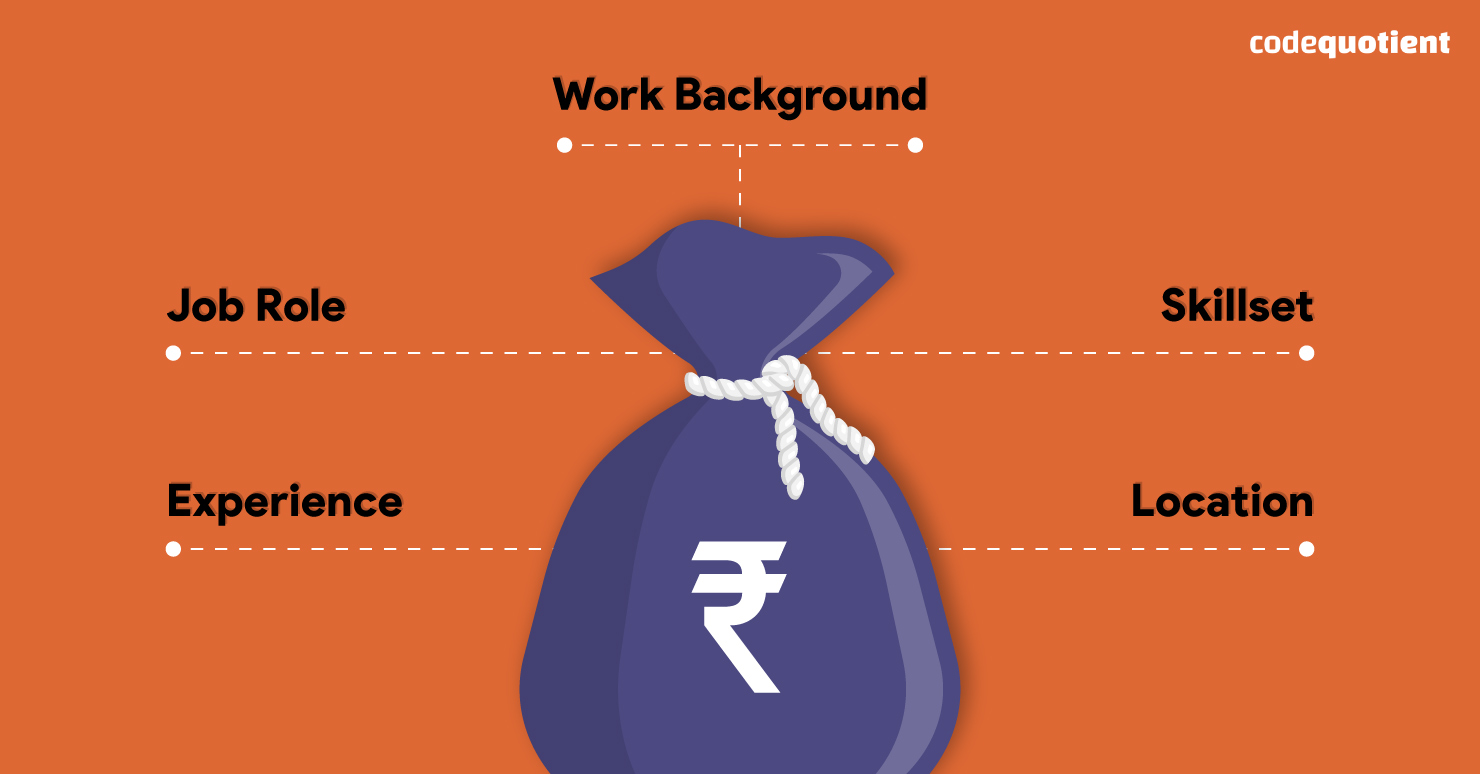If you pause and look around, you’ll see a world driven by technology. The list is endless, from virtual assistants and AIs like Siri and Alexa to tech-driven food-delivering apps like Swiggy and Zomato. Considering software engineers are at the heart of this technological boom, it isn’t surprising to see them in high demand. And being a tech recruiter, your job is to hire the right software engineer and do it at the proper budget.
So, how do you know what’s the proper budget? What exactly is the software engineer salary benchmark in India?
Several factors influence the average pay scale. Therefore, it is crucial to be aware of all these factors to avoid quoting the wrong figure when hiring. You risk missing out on top-level candidates if you quote a bit too low. However, if you overcharge, you will pay more than the candidate is worth.
Think of it as a game you get better at the more you play. And these factors influencing the salary are the rules you must follow.
Also read: How to Improve Your Job Descriptions to Attract the Right Tech Talent?
So, make sure you run through all the factors mentioned below before deciding upon a figure.
Factors Influencing the Software Engineer Salary Benchmark in India

Several factors determine the market value of a software engineer in India. These are the most determining ones:
1. Job Role
To the layperson, software engineers spend their time coding. But there’s a lot more they do than simply coding. Depending upon the job profile, their tasks and responsibilities vary. For instance, a full-stack developer is usually involved in everything. A full-stack developer is responsible for managing what the users see on their screens and ensuring the systems at the back are functioning smoothly.
Compare this to a data scientist who compiles and analyses data, creating valuable insights from it, which solves the organization’s problems and helps in marketing. Even though both are software engineering roles, their responsibilities are different, bearing on their salaries. For example, entry-level application software developers earn an average of ₹501,874 per annum, compared to entry-level full-stack developers who earn an average of ₹623,920 per annum.
While in most cases, the difference in the average pay between two software engineering roles is minimal, but sometimes it can be a lot. For instance, the average salary of entry-level NLP and Machine Learning Engineers is ₹701,478 per annum.
At the same time, the average pay of QA engineers is ₹386,950 per annum. Therefore, it’s essential to know the salary benchmark according to each role you’re offering to make an informed and mature decision.
2. Skillset
From programming languages like Python and Java to web languages like HTML, a software engineer needs to be well-versed in many types of code.
The various kinds of languages a software engineer is fluent in determine the skill level of that individual. This ultimately has an impact on the average salary of a software engineer.
In India, people skilled in Java and JavaScript earn more than people who work on programming languages like SQL and NET. According to the Payscale website, a software engineer working on Java makes about ₹75,000 more per annum than a .NET software engineer.
3. Experience
Along with the job role and skills, a software engineer’s salary is directly proportional to their years of experience in the industry.
While the initial package is around ₹340,000 per annum, the salary goes up to ₹800,000 after spending a few years in the industry. A senior developer, on the other hand, with more than ten years of experience, can earn about ₹1,200,000 per annum. Like every other industry in the world, the pay scale in the IT industry rises with the rise in seniority level.
Also read: Top 7 Tech Skills to Look for When Hiring Software Application Developers.
4. Location
Remember, India’s software industry salary benchmark varies depending on location. So, you might have to shell out more depending on your hiring location. For instance, the average salary of a software engineer in Gurgaon — one of India’s emerging tech hubs after Bangalore — is 21% more than the national average salary of ₹510,982.
In contrast, the average salary of a software engineer in Chennai is 6% less than the national average. This is why many software engineers move to cities like Gurgaon and Bangalore from situation to situation.
There are two reasons for the difference in pay according to the location:
- How developed is the IT sector in that city? If it’s very well developed like Bangalore or Pune, the average pay will be higher as these companies receive more investment.
- The cost of living in that city. If it’s a big metropolitan, the average salary would be more than in a small town or city.
5. Work Background
As you know, the average pay for a specific role changes from company to company in every industry, and the IT industry is no different. During most of the time, this difference is negligible; sometimes, it can be a lot. For example, the average pay at Cisco Systems Inc is ₹1,260,884, compared to ₹445,000, which is the average salary at any other IT company in India.
So, if you’re interviewing an individual with a background from Cisco Systems Inc, don’t be surprised if the figure they quote is higher than the average in your IT sector.
A different way around!
It’s essential to remember that the degree to which these factors come into play varies from situation to situation. So, the average salary will also vary depending on the number of factors at play.
Also read: Top MUST-Have Skills Recruiters Look For While Hiring Tech Talent.
Nevertheless, knowing about all these factors puts you in an advantageous position when you step into the hiring market.
Now that you know India’s software engineer salary benchmark and the factors influencing it, we hope it becomes easier for you to make the right hire.
At CodeQuotient, we train individuals and software engineers into market-ready full-stack developers.
Our three-month-long situation course is expertly designed on a project-based learning model, where engineers and learners get the chance to upgrade skills and build portfolios simultaneously.
Individuals, companies, and colleges work with us to churn out expert developers and hire the best candidate from the talent pool. For more insightful articles, check out our blog here. Or, to hire the best upcoming software engineers, get in touch with us today.




